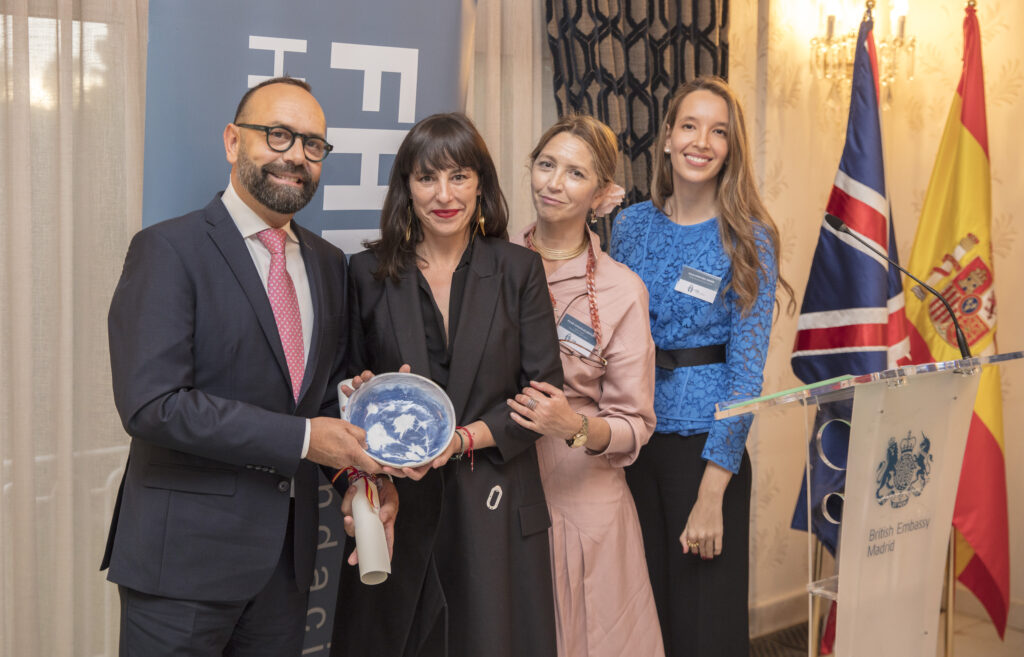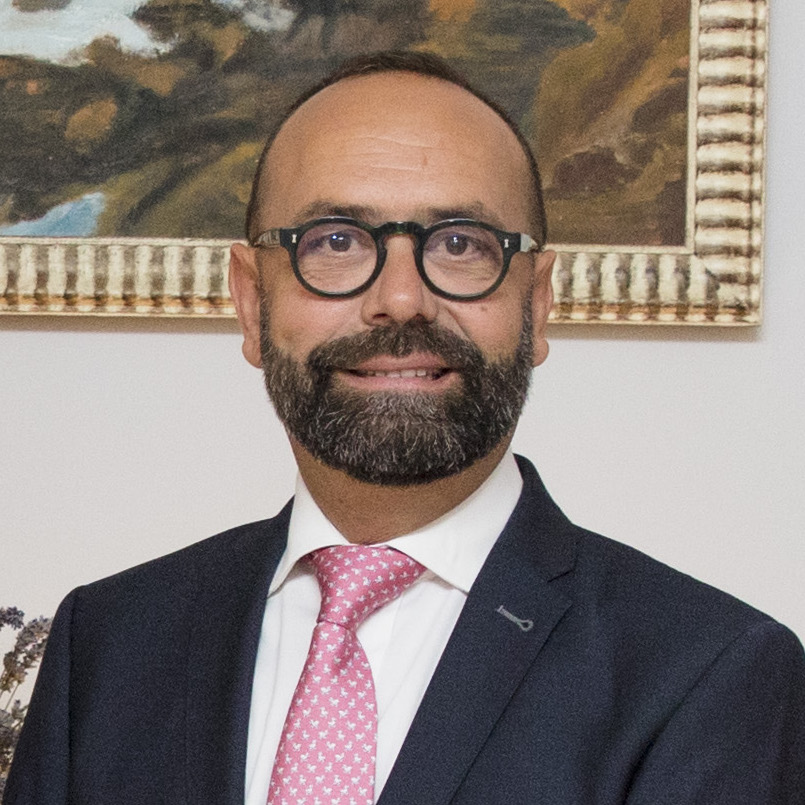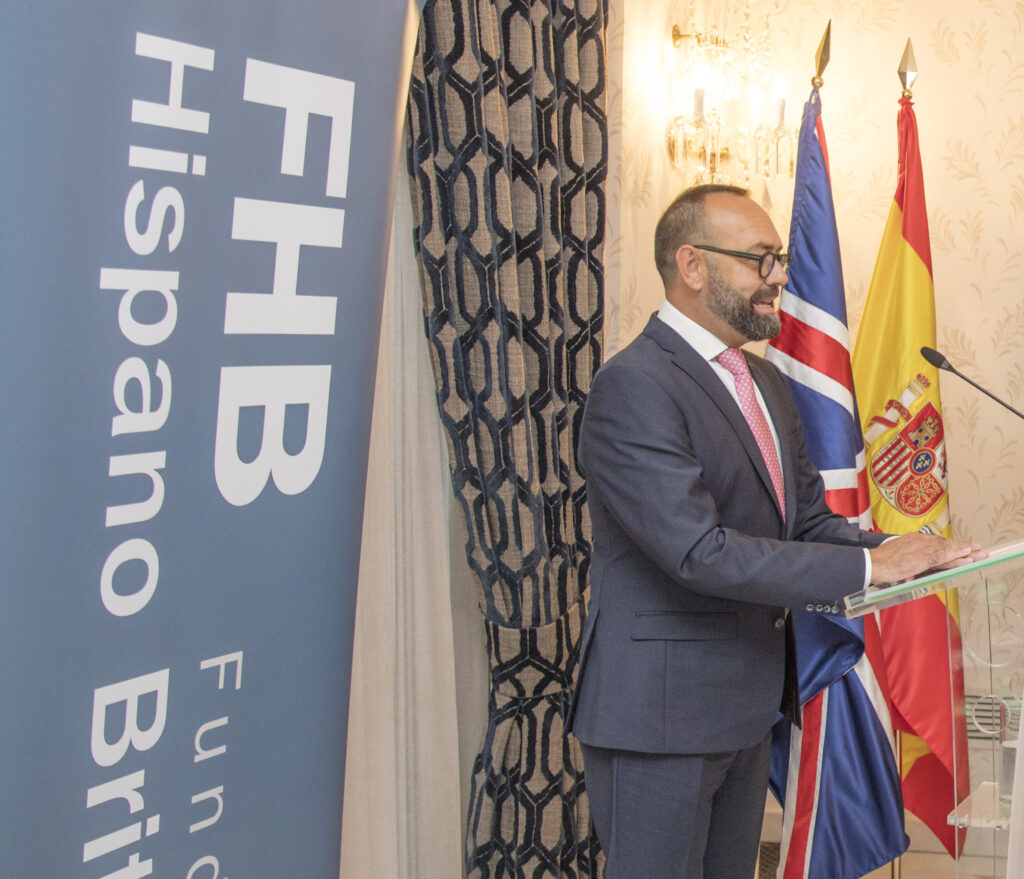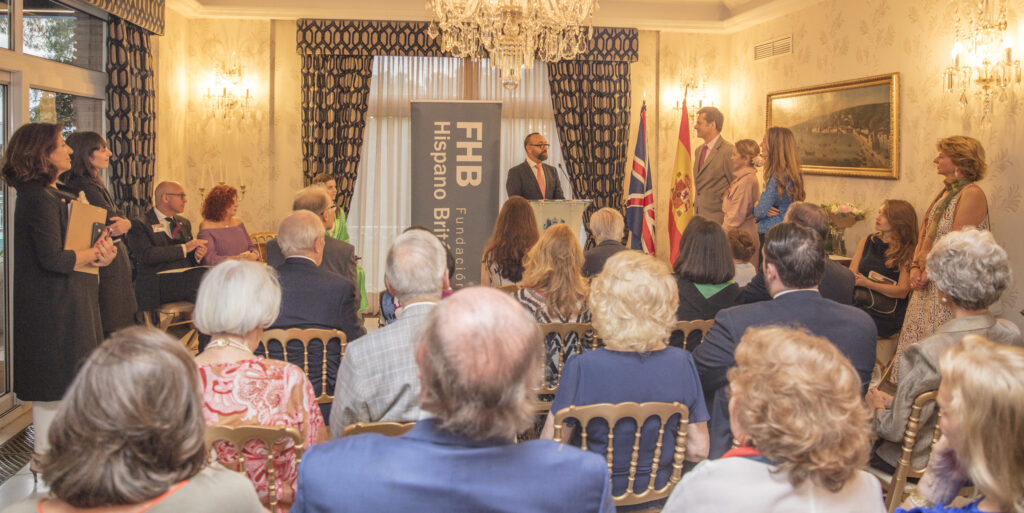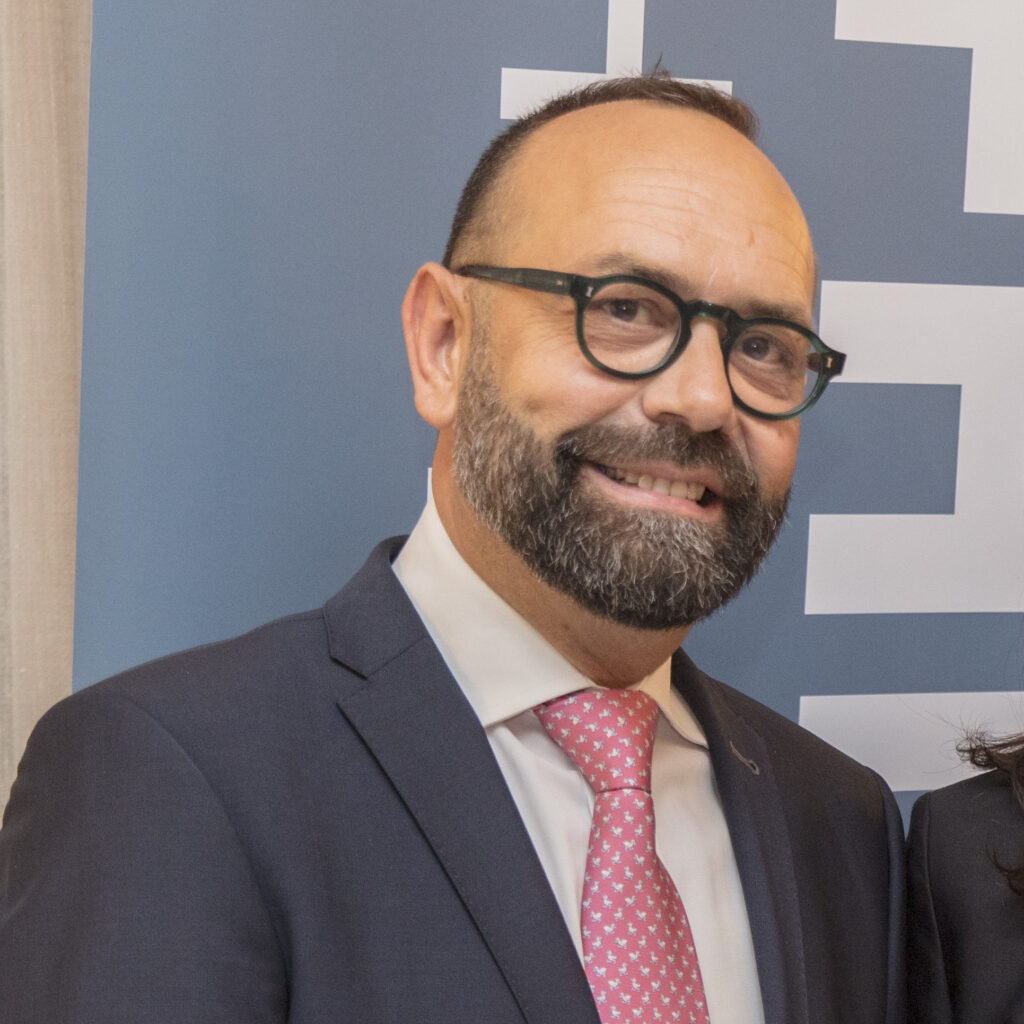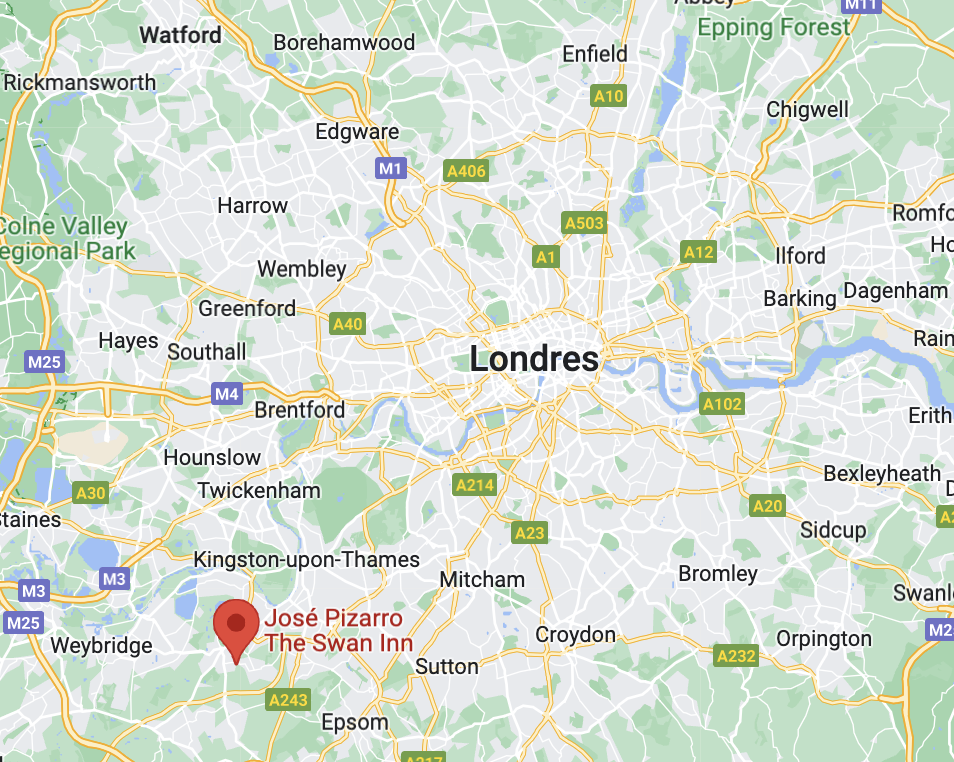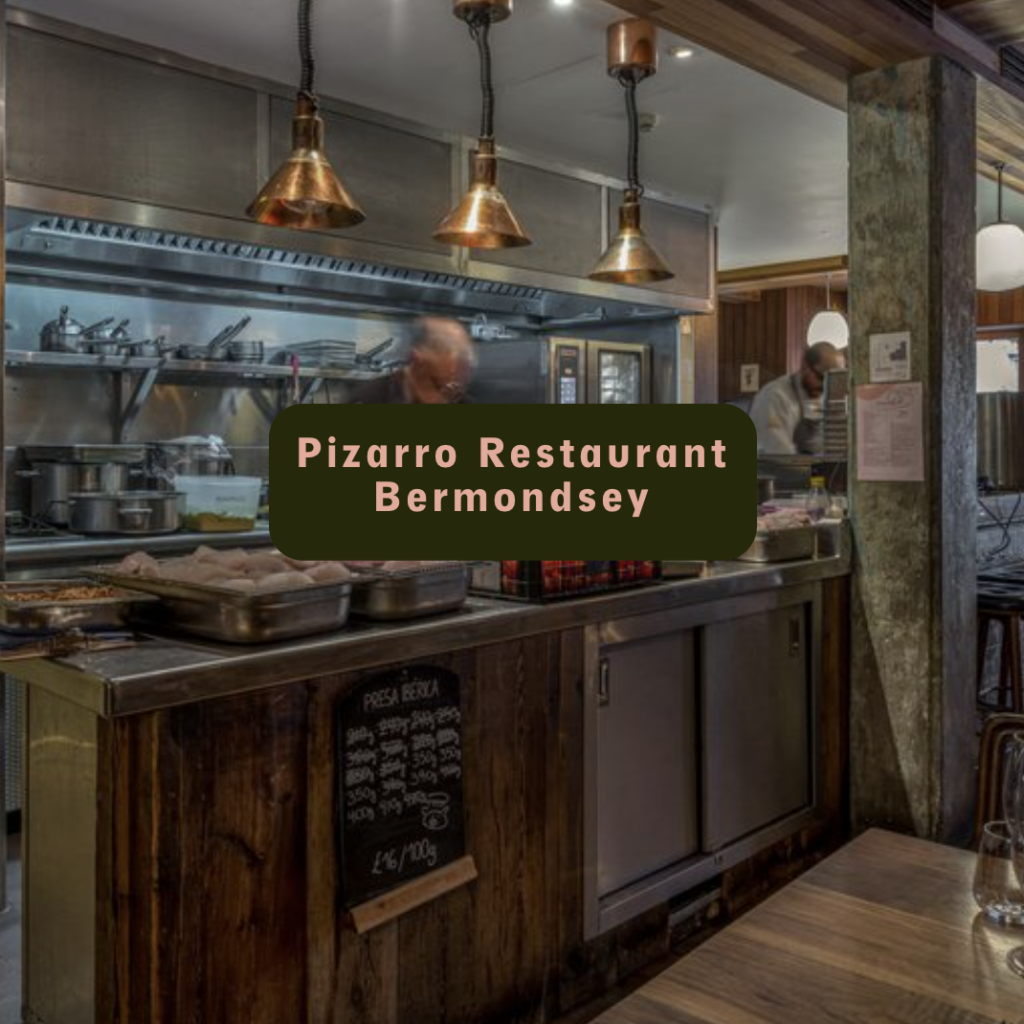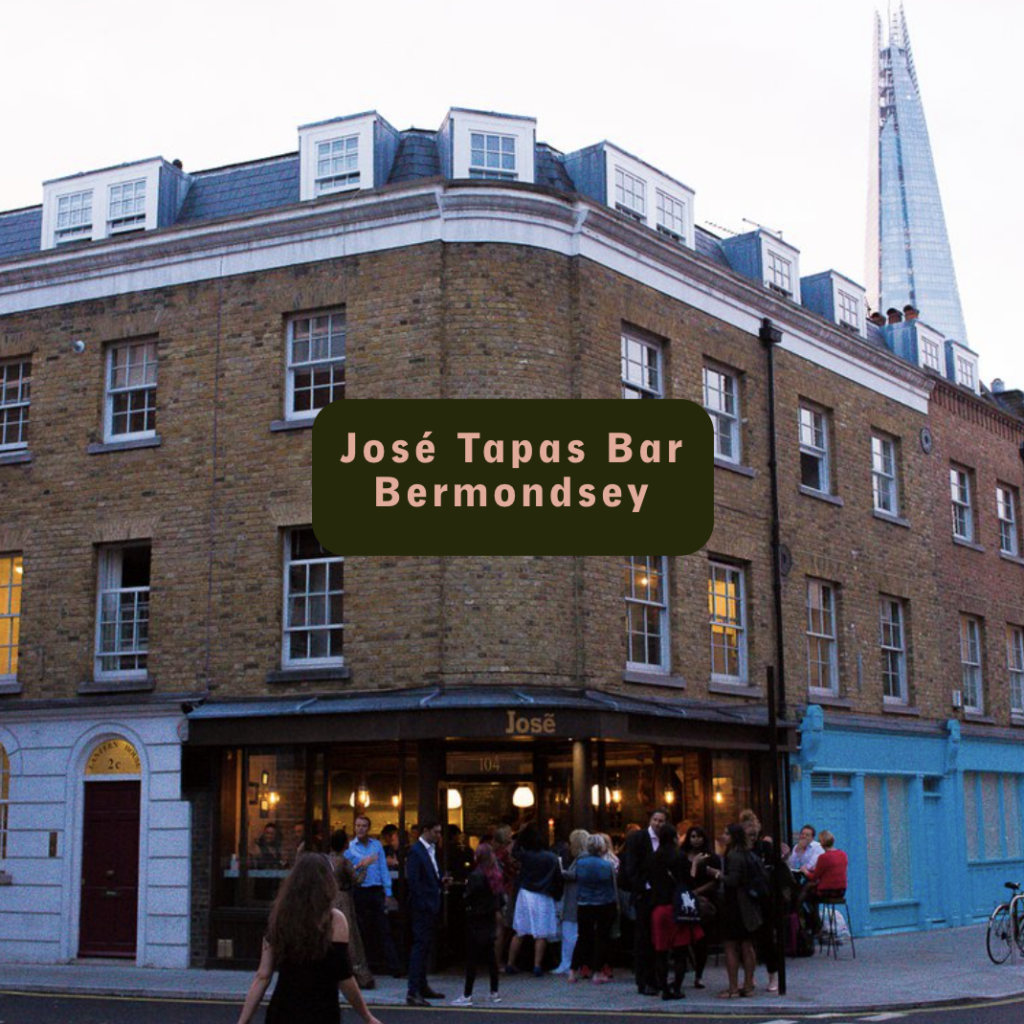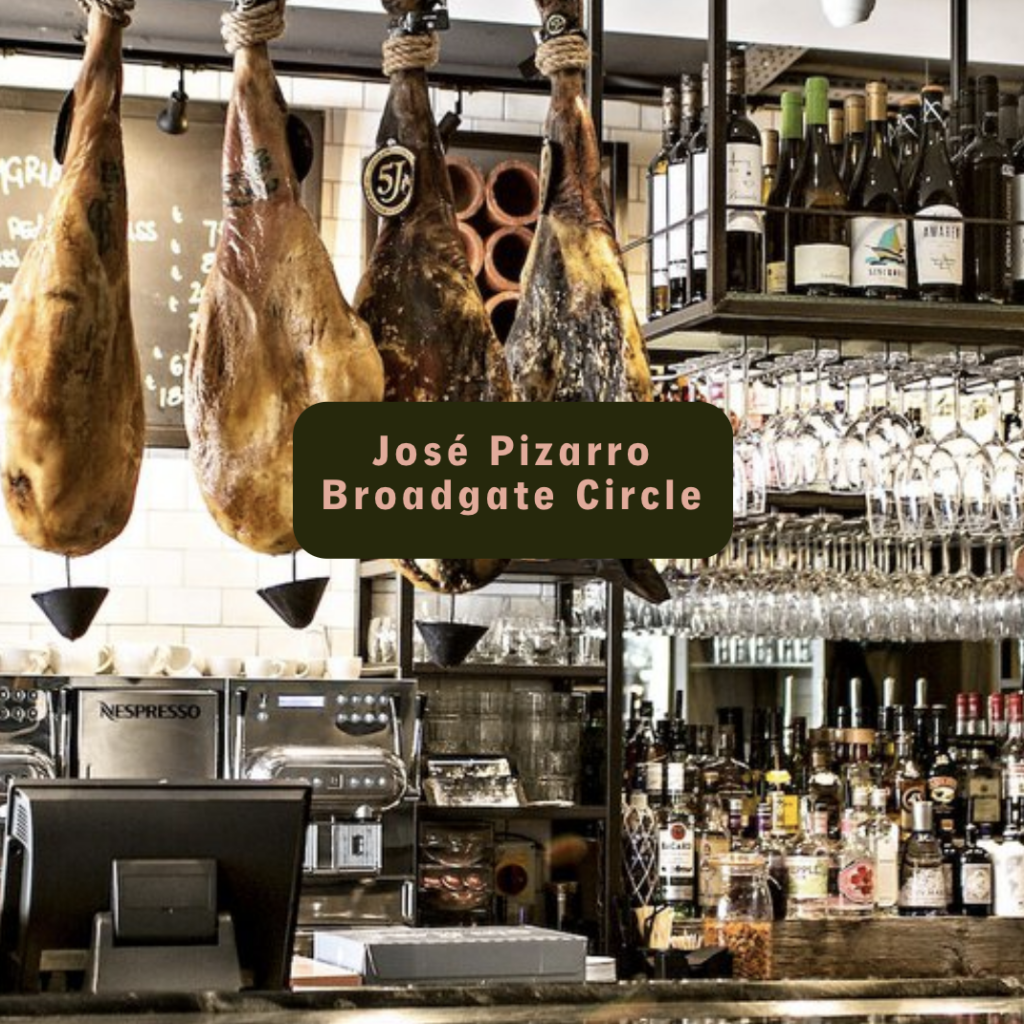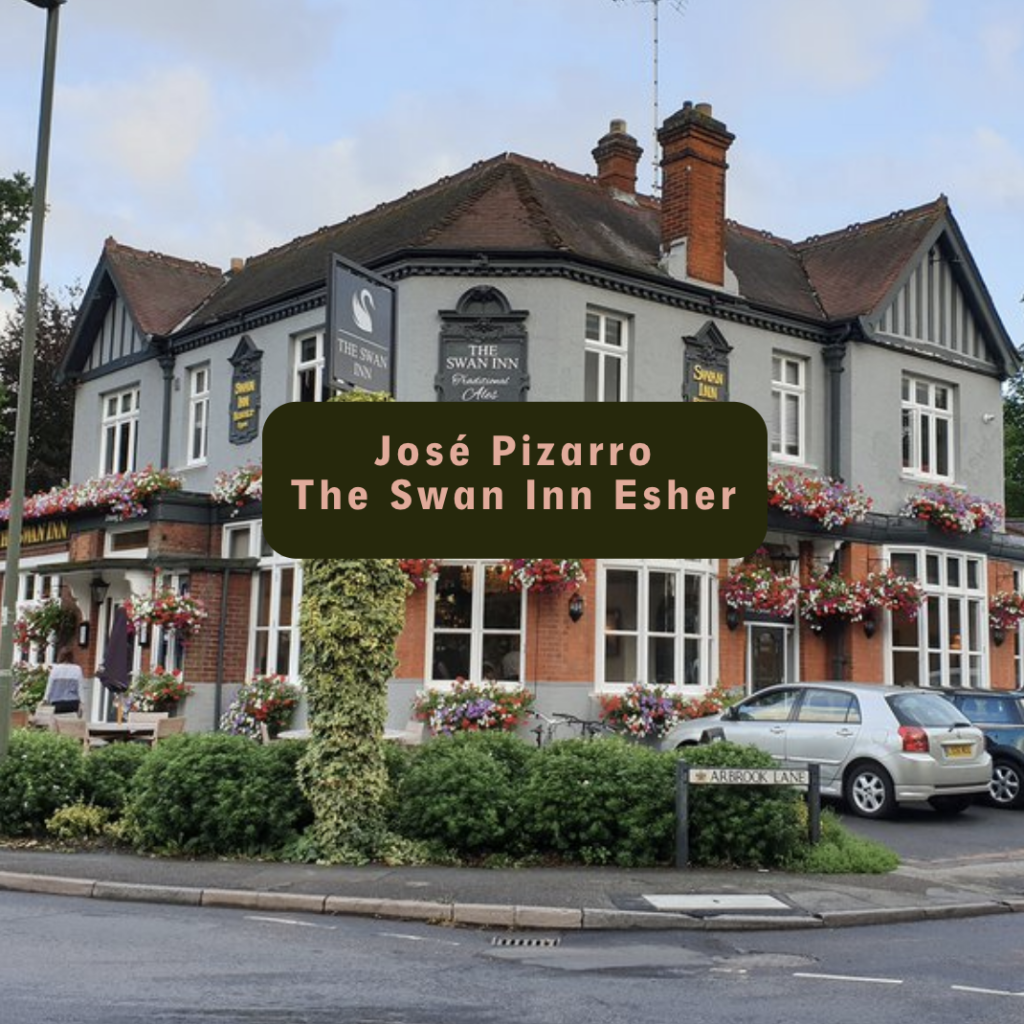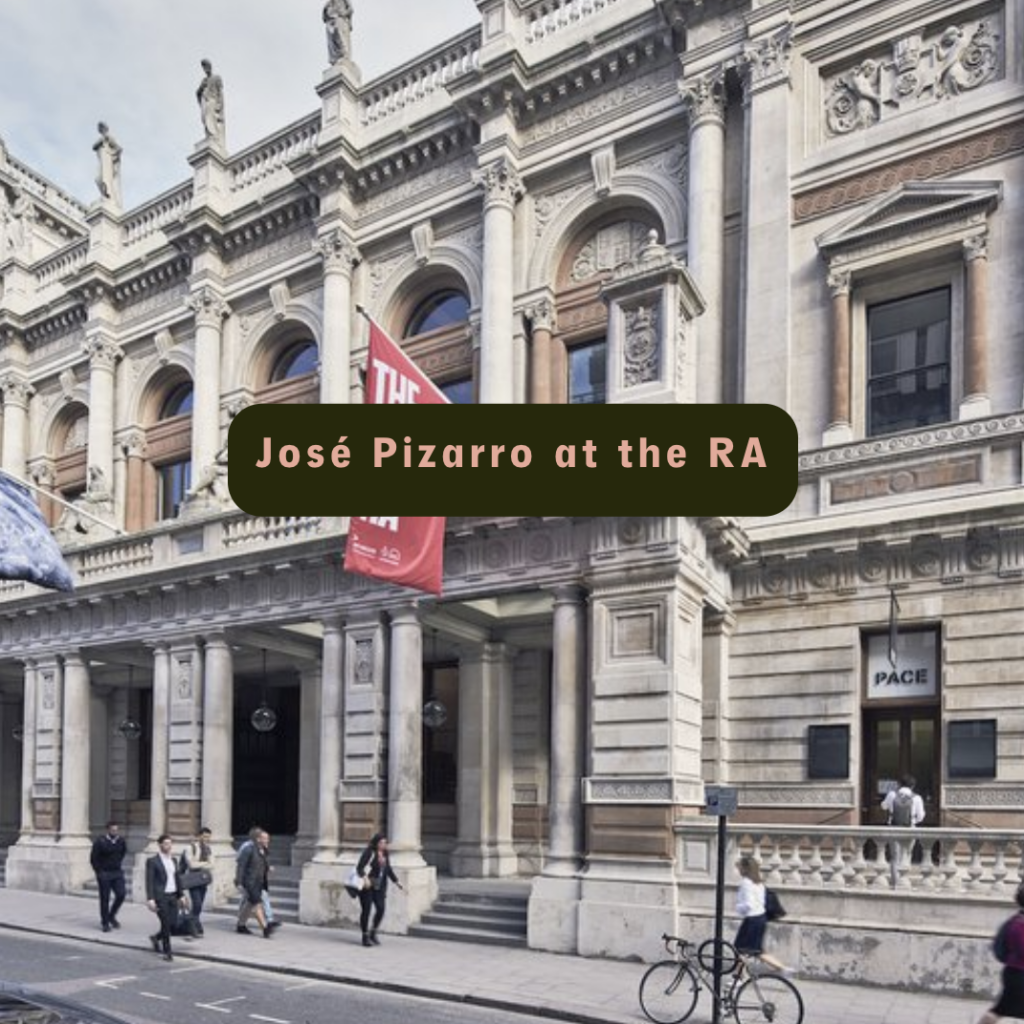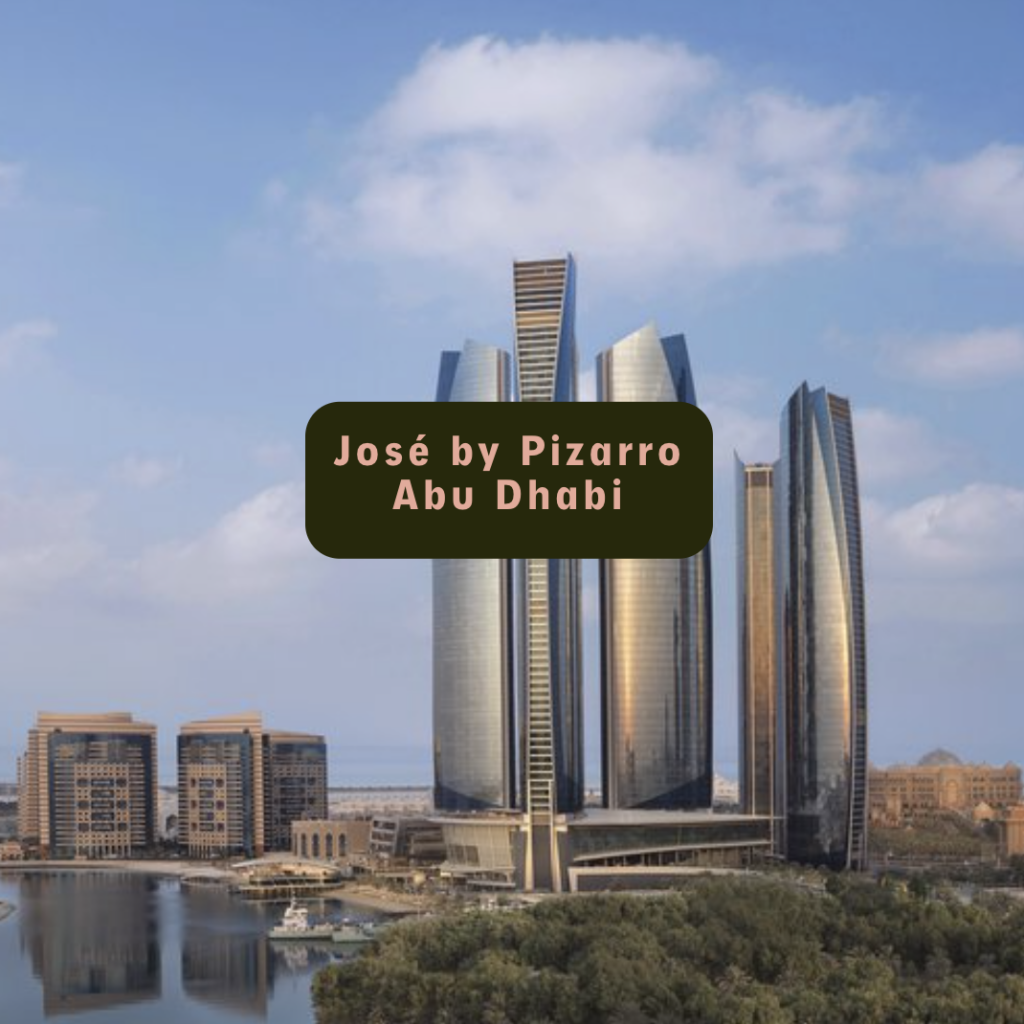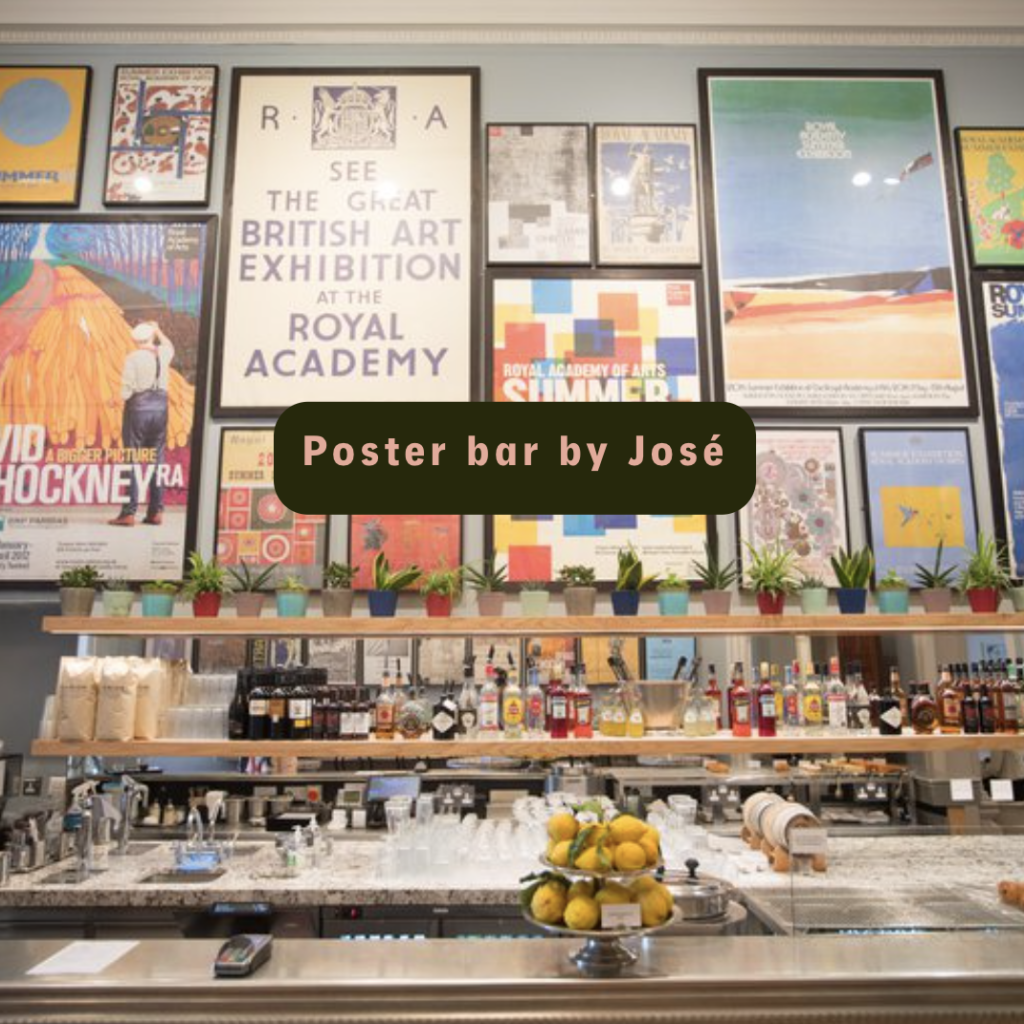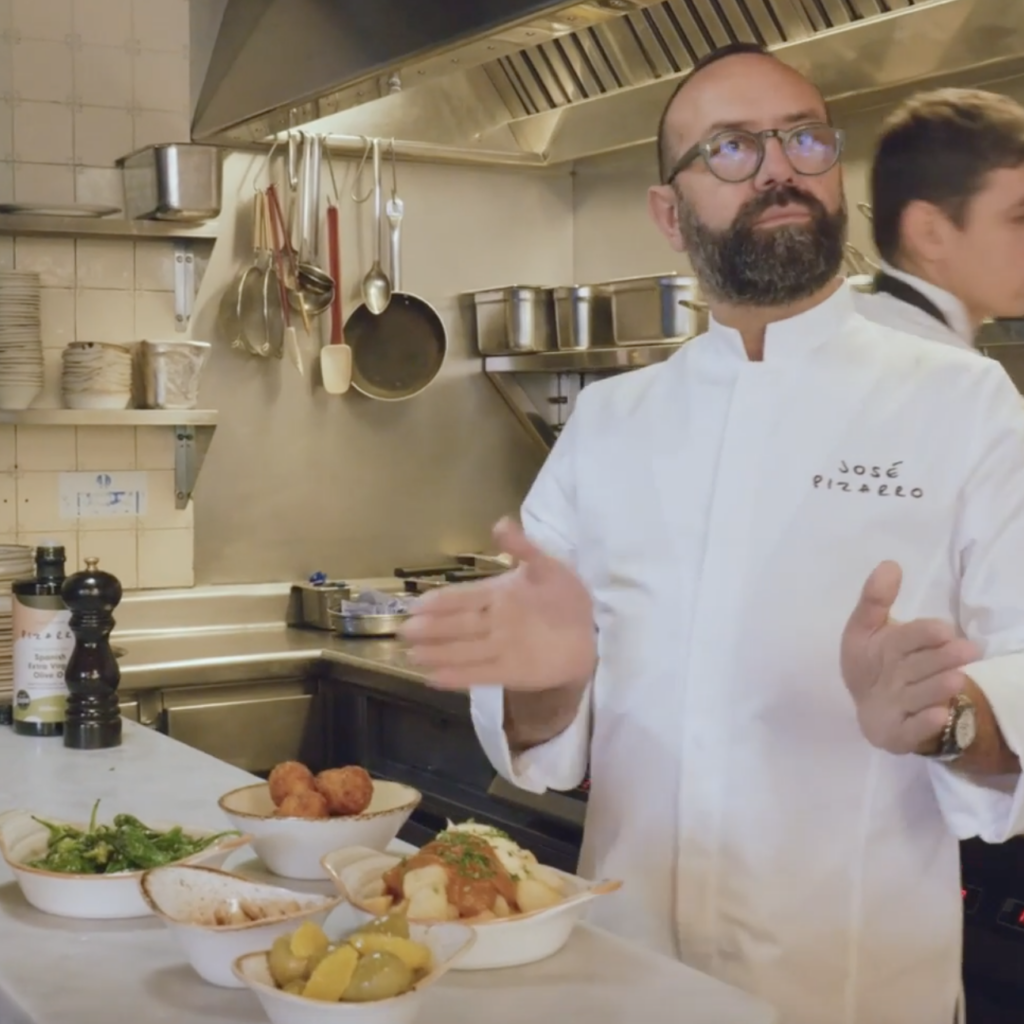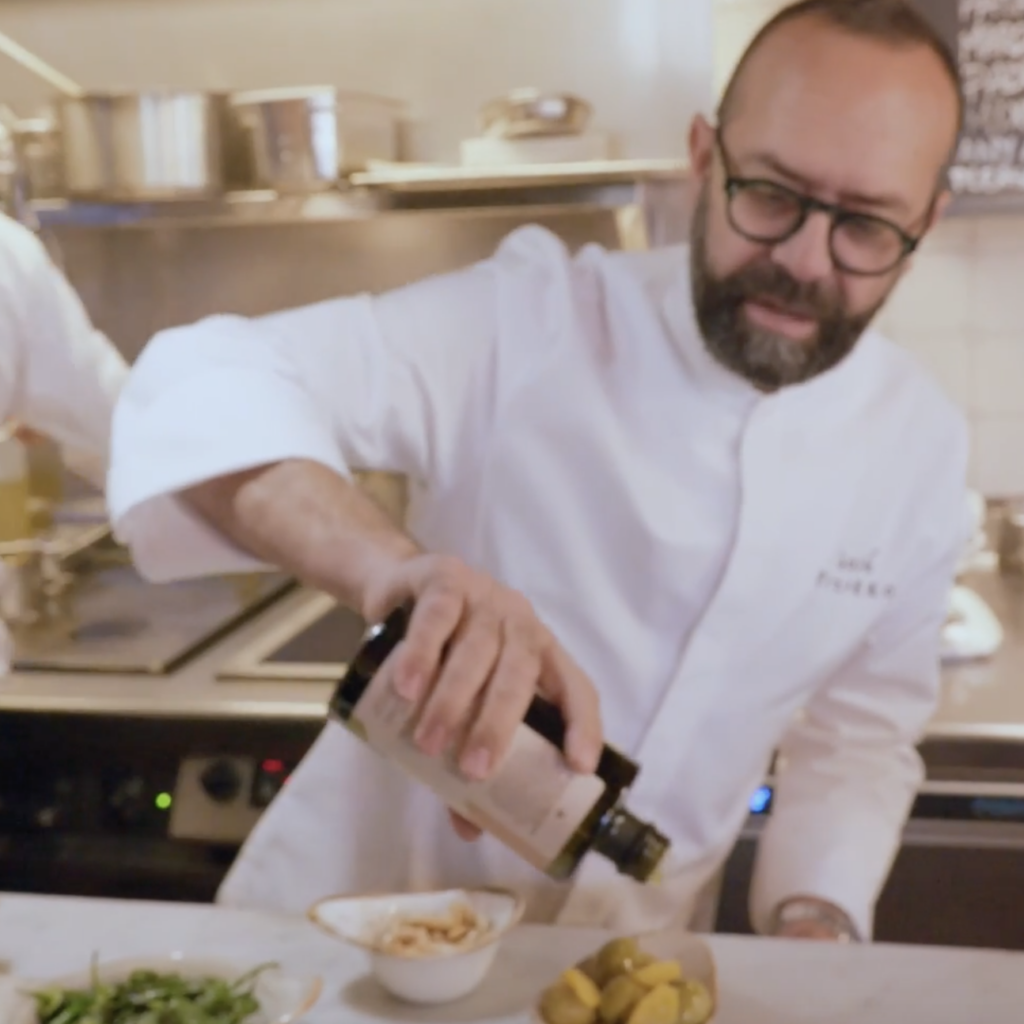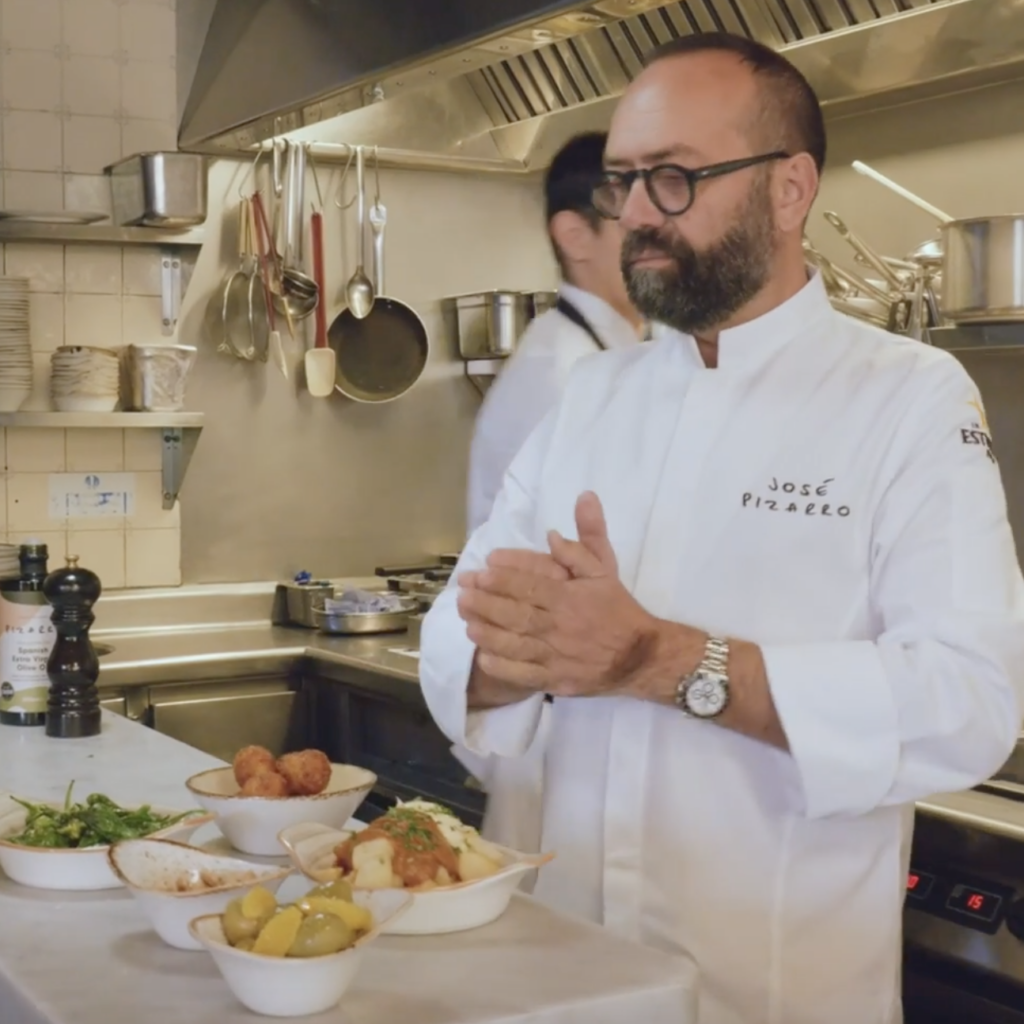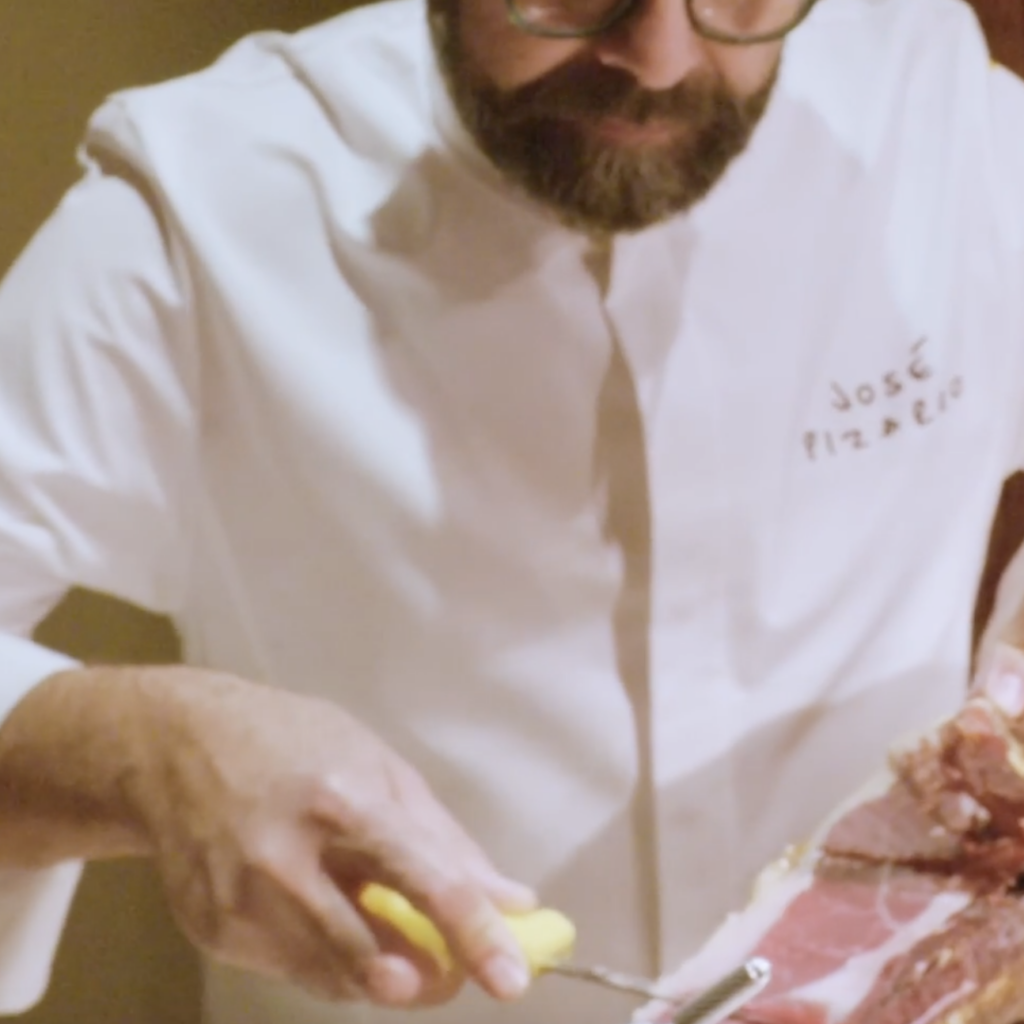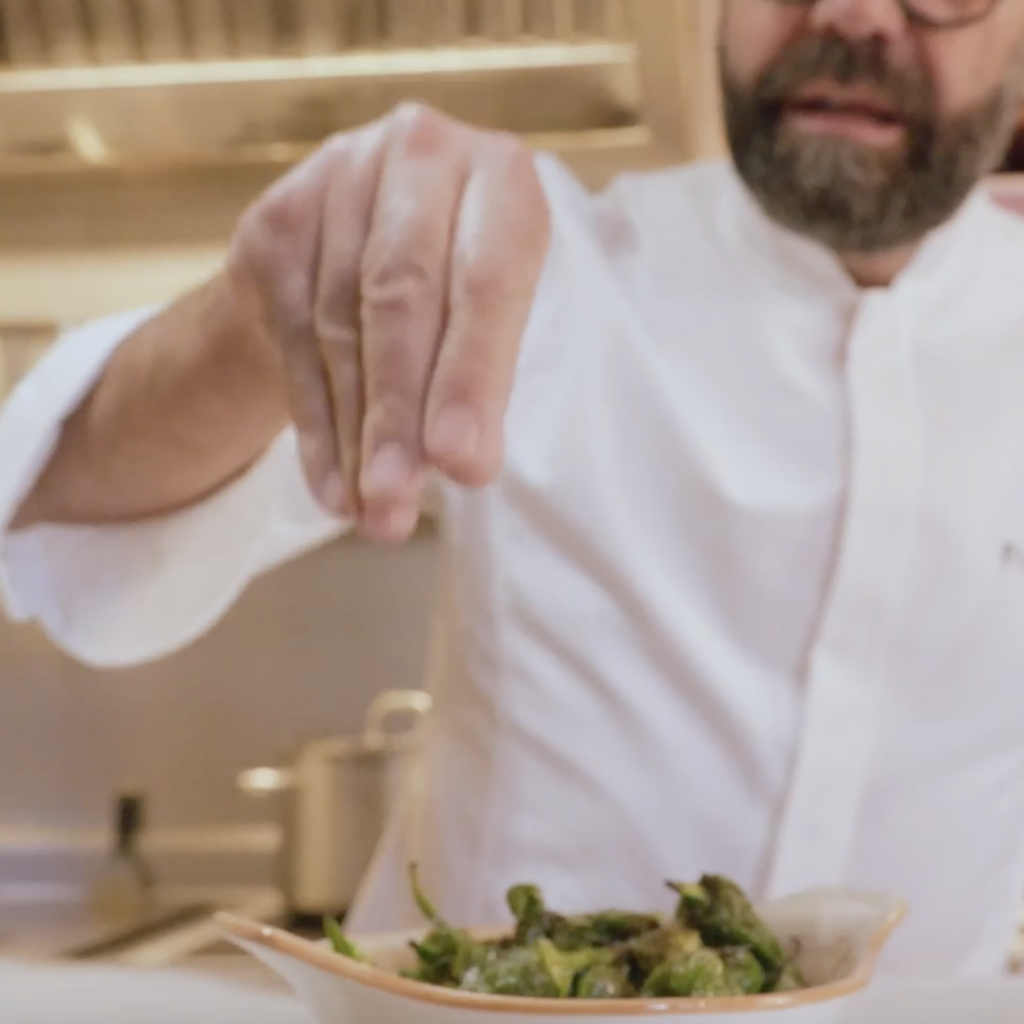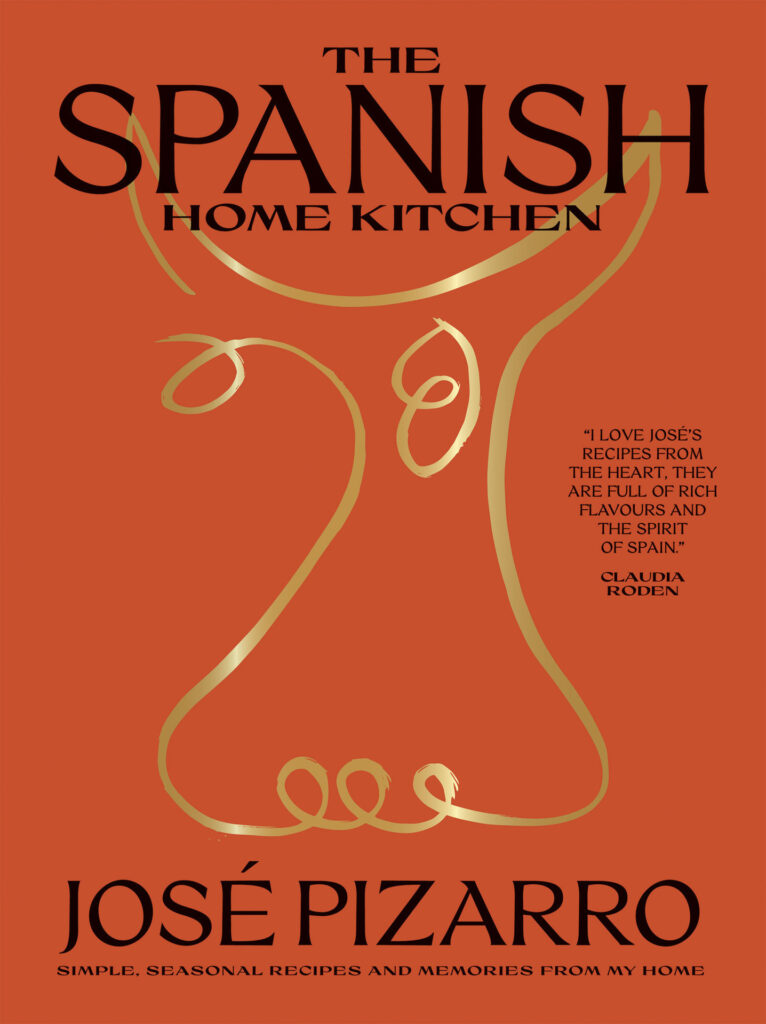FHB interview with JOSÉ PIZARRO, Chef, «FHB Friend of Honour 2023»
José Pizarro personifies the humble achiever. One could even argue that he is taken aback by his own success. His adventure begins following his arrival in London, unemployed and with barely 50,000 pesetas. Over the last twelve years, he has acquired eight restaurants, written several books, and established himself as a global gastronomic authority. “London is my home and my secret, the Spanish product,” he explains.
ISABEL AIZPÚN
(Translated by ANA LUCÍA CERDÁN)
October 2023
What if, instead of asking you about the beginnings of your career, we started at the end, or better yet, at the present, by asking you what it means to you to receive the FHB Friend of Honour Award 2023?
I’m overjoyed to get the award because it was given to me by both of my countries. It’s good to be recognized in my two favorite nations.
It is a tremendous honour for me.
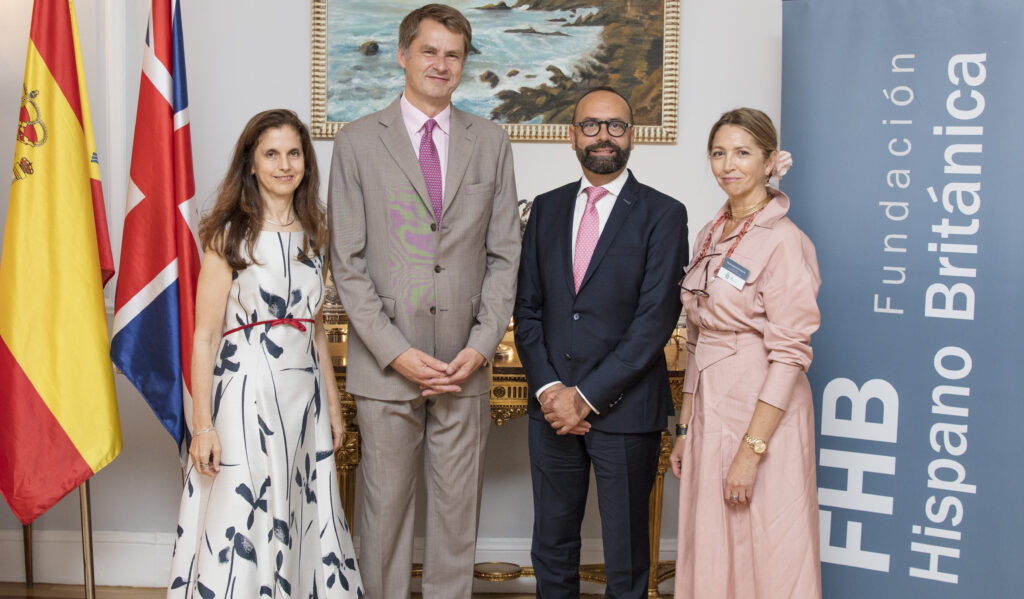
You’ve created a unique symbiotic relationship between a pub and a bar.
It’s a British tavern with a Spanish vibe where we serve ham tapas as well as fish and chips. It has a strong Spain influence. I’ve always wanted to have a classic English pub because, just like when you go to a Spanish bar and ask for a “caña”, you ask for a pint at the pub, and they’re both places where you hang out with friends, it’s a real community.siempre había querido abrir un pub inglés y abrí uno en Surrey.
What was the first thing that impacted you arriving from Spain?
When I got there, I fell in love. Gatwick Airport is where I fell in love with London. I fell in love with the diversity I observed since Madrid was not what it is now 25 years ago. And I witnessed the diversity of cultures in the streets, the lovely people… I will always be grateful to everyone in the UK for welcoming me; being able to speak English and converse with people was the best thing that could have happened to me.
What prompted you to choose London?
I’ve always had one eye on London and the other on New York, but London also represents our shared past, and it’s always drawn my attention. I was working at “El Mesón de Doña Filo” in the Madrid Mountains and I wanted to travel. I was the head chef of a one-Michelin-starred restaurant, and I yearned to travel and learn about other techniques and cuisines. I couldn’t decide how to leave. One day, I met a girl who told me to go to London. And then I left.
Did you already have a job there?
No, I didn’t have any job. After selling my car I got 50,000 “pesetas”. I had a party with my friends and then I departed. I was aware that given my level of experience, no one would hire me so easily in restaurants at the level I wanted to learn. However, I was quickly hired by a Spanish restaurant, which allowed me to stay in the city for at least a few more months. I was primarily focused on signature food, paying close attention to small yet extremely avant-garde elements. I realized that it did not appeal to the British consumer. Consumers in the United Kingdom want to know, and it is difficult to comprehend lentil foam with chorizo if you have never tried it before.
They were two absolutely different worlds…
Absolutely, and I was worried about it because I wore the ham by flag… When they told me about how delicious “parma jam” was or paprika… I used to recall how the “Pimentón de la Vera” tasted like, and how people could talk about paprika so freely. So, I decided to do whatever it took to get our products noticed.
From Gaudí, the first restaurant I worked in, I moved to a Spanish-Portuguese restaurant as head chef, where I began doing starters dishes, thanks to which I was called “crazy” because of my cooking style;nonetheless I was more concerned with getting the product known. We have the Iberian pork, and not just because of the ham. I wanted to highlight the full potential of Iberian hog meat. My supervisor thought I was crazy when I said I was going to present it almost raw on the menu, but I persisted after handing him all the required paperwork and permissions. It was a huge success. In fact, these items have been on the menu for over 20 years. Currently, my ideas are concentrated on Almadraba Red Tuna. I can’t tell you how much people adore marinated ribs with that little touch of garlic, just like my mother used to cook them, the oil, the parsley…they get ecstatic…
How long did it take you to realize that you were going to make it?
I never expected to make it. I have dedicated myself to work, work, and more work. Not only to achieve something, but to learn, and my mission was to make gastronomic culture known. I never envisioned owning eight restaurants in London.
Brindisa called and asked me to open the first restaurant under my management. And I said, “I’ll open it, but I’d like to have some shares.” I had been in London for about four years.
Did you already speak English at the time?
It’s still challenging for me…I’ve always been a bad student who struggles to concentrate. I’m good at crafts, which is why I studied dental mechanics.
Was there anyone encouraging you from the time you took over your first restaurant until now?
After all, there is a lot of administration…
I learned the hard way since when I launched JOSÉ, I sold my Brindisa shares. With that money, I opened almost every store I could. I enlisted the help of other partners who helped me with finances and management. Finally, I was negatively affected. You learn. In the end, it was me who turned things around; I acquired the entire business from my partners, and we are where we are today thanks to a lot of effort, a lot of love, a really good staff, and a lot of headaches. In my first restaurant, just 32 square meters, we serve more than 1,400 customers a week and I don’t have a microwave. That place is the best thing that has happened to me; I never thought that JOSÉ would work and it is already a site in the United Kingdom.
You are experimenting with your name for so many restaurants, including eight in the United Kingdom, Abu Dhabi, and your home in Zahara… muchas variaciones con su nombre para tanto restaurante, 8 en Reino Unido, Abu Dhabi, su casa de Zahara…
I’ve always wanted to own a restaurant called JOSE. Actually, it all started with my grandfather, who managed a bar in the village called Pizarro. They used to cook just three or four kinds of dishes at home in Talaván. I used to say that if I ever opened a restaurant, I would name it Pizarro after my grandfather, but the first thing I opened was a bar, a kind of tiny restaurant, so I thought: now I call this one JOSE, and if I ever open a restaurant, I will call it Pizarro after my grandfather. In May 2011, I opened JOSE, and in December of the same year, I opened PIZARRO.
During all this time, have you had a big dilemma between butter and oil?
Yes, but oil always wins (ha ha). James Martin, who has been filming at my house, and I are quite friends. I remember the first program recorded with him fifteen years ago. I didn’t understand him, and he didn’t understand me. He has a strong British accent. The only thing we knew about each other when we first met was that he always used butter and I always used olive oil… we are always “playing” and joking about it. I recall being taken to work in Manchester one day to prepare the usual things: “gazpacho”, “tortilla”…. They hadn’t even heard of olive oil in Manchester. People looked at me and said, “I don’t eat that because it has oil in it.” They utilized the oil as a cure for their ears. They believed I was mad. I went to the pharmacy to get a little olive oil pot for three pounds. It was marketed as a therapeutic treatment.
Fortunately, that situation has drastically changed. Nowadays, Spanish cuisine is fairly well-known.
We’re pretty good at it…
Yes, that’s right, in fact, there are Spanish chefs in London, such as Quique Dacosta, among others… nowadays, it’s not just about “tortilla de patata”, “gazpacho”, or “croqueta”, though these dishes are still served. Furthermore, English people no longer come to Spain solely for sunbathing, which is fantastic too, but also to enjoy Spanish cuisine.
What distinctions do you see between the two cuisines?
British cuisine has always been great…roasts, bushmeat… but much of home cooking was lost following the industrial revolution, with people working outside the home. People are cooking again, and it is wonderful. People gather together and enjoy a fantastic time with their families, something I have noticed in recent years. There is an amazing quality product, terrific lamb, fantastic cheeses, the best asparagus in the world, strawberries, mushrooms… yet it is little known. I aim to use as many UK products as I can. It makes sense. We are neighbors, and by cooperating, we can make the world a better place.
The inauguration of a “pinchos” restaurant must have piqued people’s interest….
Indeed, we offer them every Friday at the Royal Academy of Arts, where I have two restaurants; a privilege that I was given probably because I am an art collector and engage with many of the featured artists, which must have influenced them to call me.
The “pinchos” have also gained popularity.
Naturally, they were well received. And, why not? I provide a flavor and a product. A delectable anchovy, a refreshing gazpacho, and a superb Jerez vinegar. A gift is always welcome? In addition, 80% of my wine list is imported. In this crazy pricey environment, I manage a high volume and also sell to other restaurants.
How would you classify gastronomy: as an art form, a technique, or a culture?
It is history; Spanish gastronomy has the most history of any cuisine. It is quite trendy right now, and there are many novelties, but we must return to the gastronomic core, product and lifelong recipes. There is nothing without a good product; you can try numerous things, but they will all taste the same. The method I acquired in restaurants and now incorporate into traditional meals has greatly aided me. I’ve always attempted to be innovative. Calling to mind classic recipes makes me happy, as does spending time with friends, sharing with them, and having a nice time. In short, it is also a company; we are a family of over 200 employees, and this can only be achieved by working from the heart, as my mother used to say…otherwise it will not move forward. I constantly tell my crew that we must cook from the heart and with love. My restaurants are like my home; people come to enjoy themselves in the same way that you go to a friend’s house to have a great time.
What precise requirements do you have for someone to join the team?
We’re a family. It’s evident to me. I hire the best salesperson, the best Culinary Director, the best operations manager, and the finest sommelier. I surround myself with excellent people, take care of them, and we all flourish together. Some have been with us for eleven years. That is something we are extremely clear about. We are eager to advance. When I grow, everyone grows.
We spend a lot of time talking, going out, and working, but the most important thing is that we know where we want to go. I’m not making anything to sell; I’m making something to communicate my business to people. I’ve accomplished more than I ever imagined: not so much in terms of money as it is of memories. My staff watches after me, and I am what you see. I don’t sell smoke; I sell fire, and they are well aware of this. Furthermore, it allows us to engage with non-governmental organizations, such as Criscancer, and to meet some fascinating people.
Will there be a José or a Pizarro in Spain?un José o un Pizarro en España?
I haven’t thought about it yet. I will return to Spain at some point, not to live because London is now my home, but probably to stay longer.
London is my home and my secret, the Spanish product.
